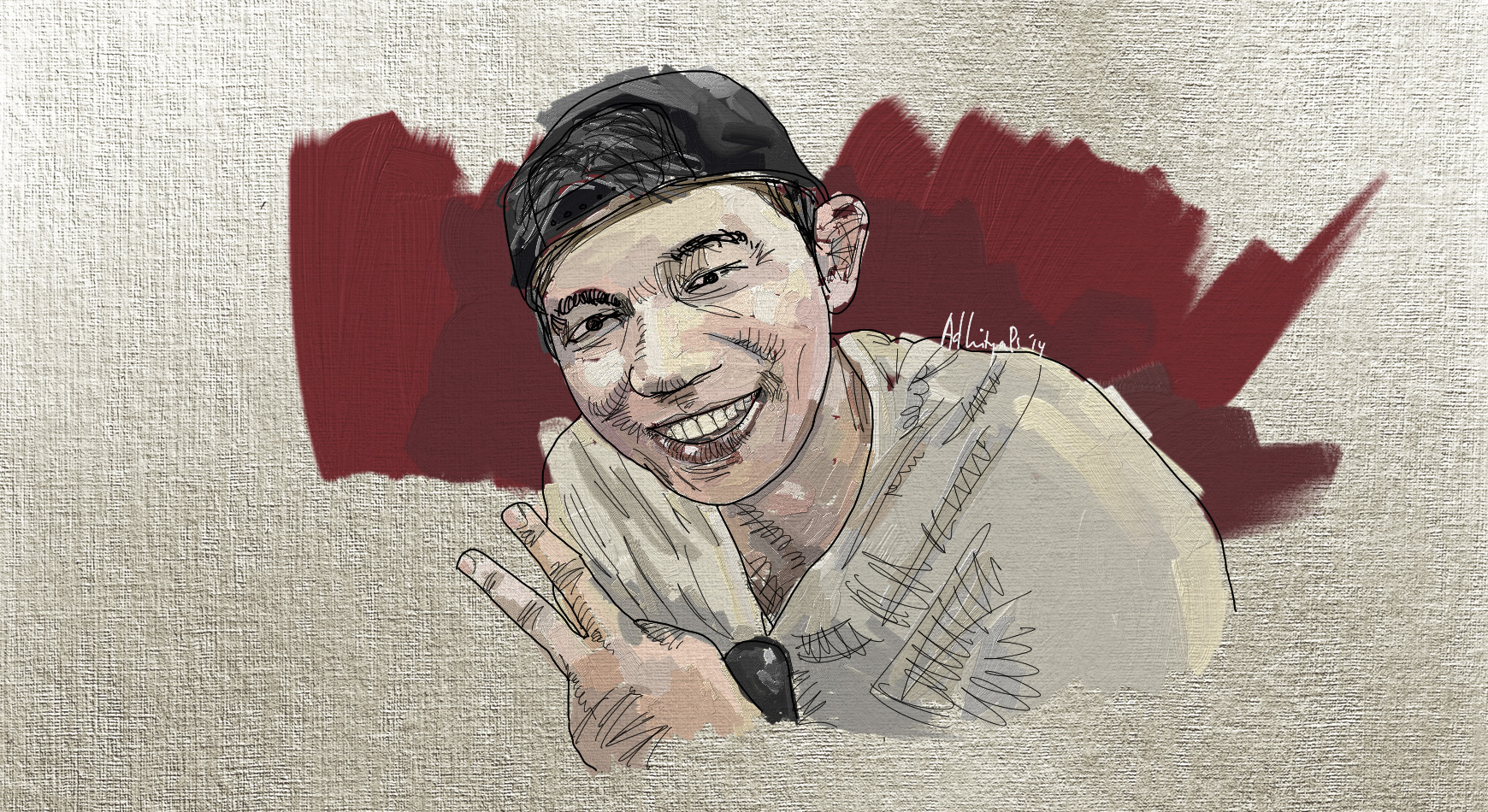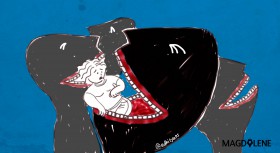He reminds us of rap superstar Lil Wayne. Small in posture, but a fire on stage. He effortlessly turns a stadium gig into a huge sing-a-long and moves from one end of the stage to another with witty lyrics about heroism and the love for his hometown.
But Yogyakarta-born rapper Marzuki Mohamad, who is famously known by his stage name Kill The DJ, is more than just a rapper on the rise with skills that manage to avoid east-meets-west musical cliché by cleverly infusing his rap songs with pentatonic sounds of Javanese gamelan.
During the presidential election campaign period, he vocally expressed his political view to endorse the then-presidential candidate Joko Widodo through YouTube videos, blog entries, and other art pieces.
“Stop looking for Ratu Adil, look inside you and let your heart tells the truth,” is the lyrics for a song he created for Jokowi, the president-elect’s popular moniker, and his running mate Jusuf Kalla.
Through an e-mail interview, Marzuki revealed that he is not only a rapper and a Jokowi die-hard supporter, but a sustainability activist and a farmer.
You rap and go to the rice field to work. How does it go?
First of all, my father was a farmer. So, it’s kind of a nostalgic reason. And also because farming is anti-mainstream, it’s not a popular activity as it’s hard for farmers to become rich. But the truth is this country has huge a potential in food commodities and as a result of mismanagement by the government we have to buy rice from other countries. That’s insane!
You open a farming land and ask youngsters in your neighborhood to work together. How do you convince them?
I told them that being a farmer is cool and they still can make money out of it. We don’t have to go to the city get a job because there is so much to do in our village. At first, it’s not easy to convince them, it takes time. But once they see it’s working, they come to me and ask me to teach them how to farm.
Where did you get the fund for the communal farming?
I use my own money and I split the profit with the youngsters who work on my lands. But then they have the idea of renting their own land. We sell our products in Prambanan market in Yogyakarta. The key to increasing prosperity among our farmers is to allow them to sell their products straight to the market, not through middlemen. If they know how to package their products more creatively they will get a chance to a bigger market.
Do you give certain rewards for these young men to keep on farming?
There are no rewards other than the profit they earn from selling the products. But because they realize they can earn the same as or even more than being a cashier in a minimarket in the city, they stick to farming.
What do you learn from communal farming?
That working together makes you happy, and if you can be useful for others, our life will be much peaceful.

Photo from Creative Commons
When did you start learning music? And why hip hop?
Music has been my passion since I was a little kid, although I am not that talented. I think I am more into drawing and writing. But I love music better. I did not choose hip hop; hip hop chose me.
Where do you get the idea of mixing traditional music with hip hop?
I grew up in Yogyakarta, where everyone speaks Javanese and listens to gamelan music almost everyday. And as a teenager I listened to hip hop music and it just flew from there. It’s just natural, when a teenager who loves music fuses his cultural background with his favorite music. There is no pretention to become a contemporary artist or whatsoever. If everything goes natural, what comes out is an honest creation.
Is there really a market for this kind of fusion music?
I am myself confused with all this labeling. It sounds pretentious. Jogja Hip Hop Foundation (the hip hop group Marzuki formed) does not care about those things. We play whatever music we like.
How do you manage to go international and play a gig in New York?
I don’t do any particular promotion to get a gig abroad. Our videos just went viral and I think it’s the power of the Internet. An artist can create their own promotional tools to be freed from the mainstream, yet still can survive.
Many Indonesian artists try to merge traditional music with pop music, but failed. How do you avoid such cliché?
If you create music as a product, and not an expression, you will not stay long. Don’t think the audience cannot detect phoniness. But if you create music from your heart, you will always survive.
You are among musicians who show strong support for Jokowi. When did you first know him?
I’ve observed him from the media from a long time ago. But I started to know him personally just two months before the presidential campaign. He’s a listener and a caring person. You cannot fake these personality traits in an age where image is everything, especially for a presidential hopeful. He will be polished in such a way to be likable. But being a good listener and caring, you can simply see it from the way someone talks to you.
What makes you think Jokowi is the game changer for Indonesia?
We all want change. We are sick of what is going on Indonesia. And Jokowi is actually the estuary of positive energy that flows from Indonesian people. If we help Jokowi, we help ourselves to become a better nation.
What do you like the most from Jokowi’s platform?
His love for culture. He is developing a cultural strategy, something no other president of Indonesia has ever done before. There is so much we can do too with a good cultural strategy. Can you imagine a few years ago that K-Pop can be a worldwide cultural phenomenon? It’s a product of well-thought cultural strategy from the South Korean government.
This presidential election is marred with black campaign. Have you experienced it yourself?
Money politics is rampant in my village. But I regularly held discussion with the people, talking about the negative impact of money politics to our village, and how it will ruin our well-running farming activities for the next five years. The result of this discussion is not bad at all. Despite the serangan fajar (pre-election bribery to voters), 70 percent of the people voted for Jokowi.
About Robertus Karyono
Robertus has a penchant for old radio chart shows and rap music. His church is the Billboard Top 100 and Jay-Z is his prophet.








Comments